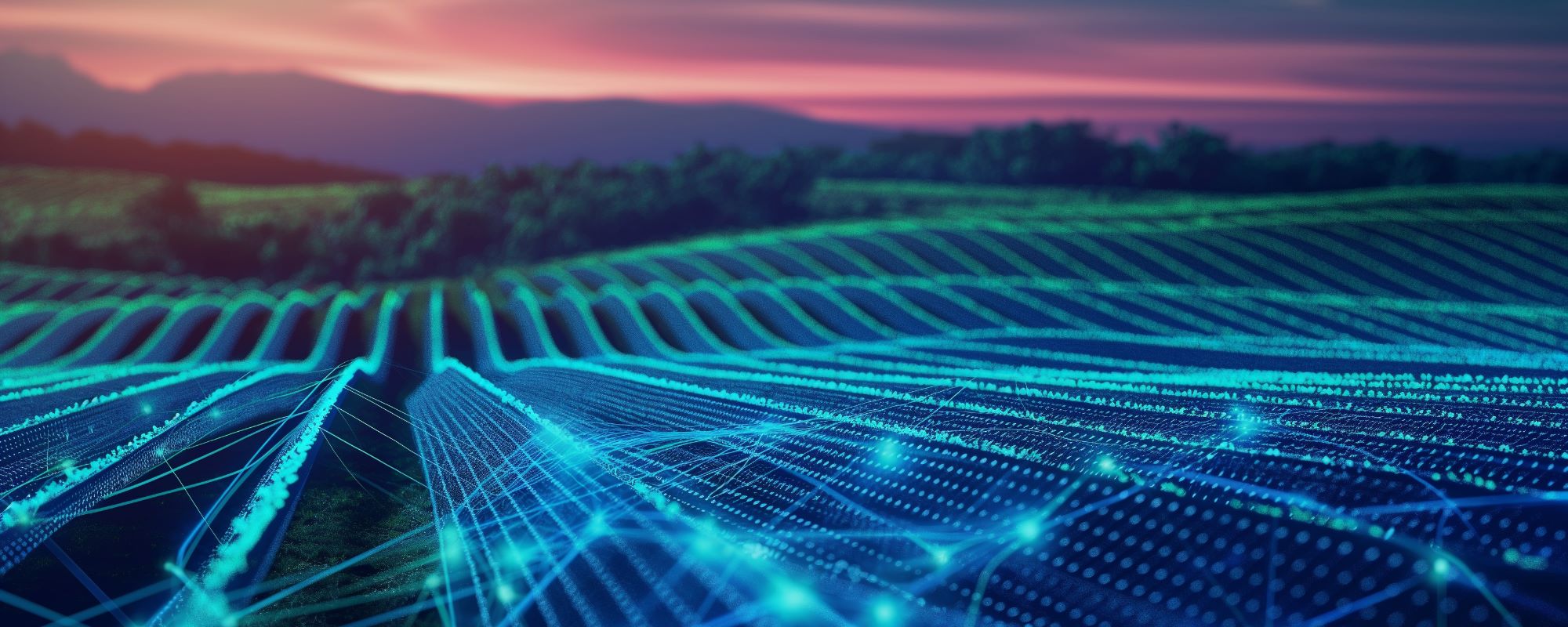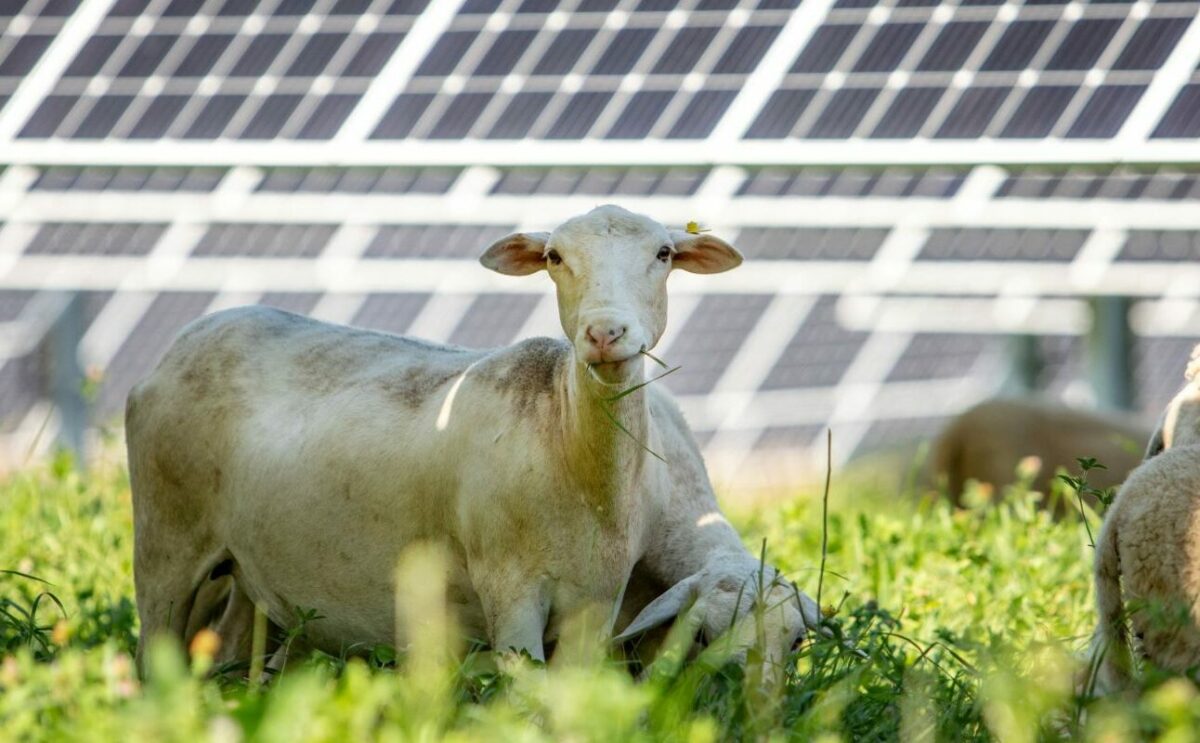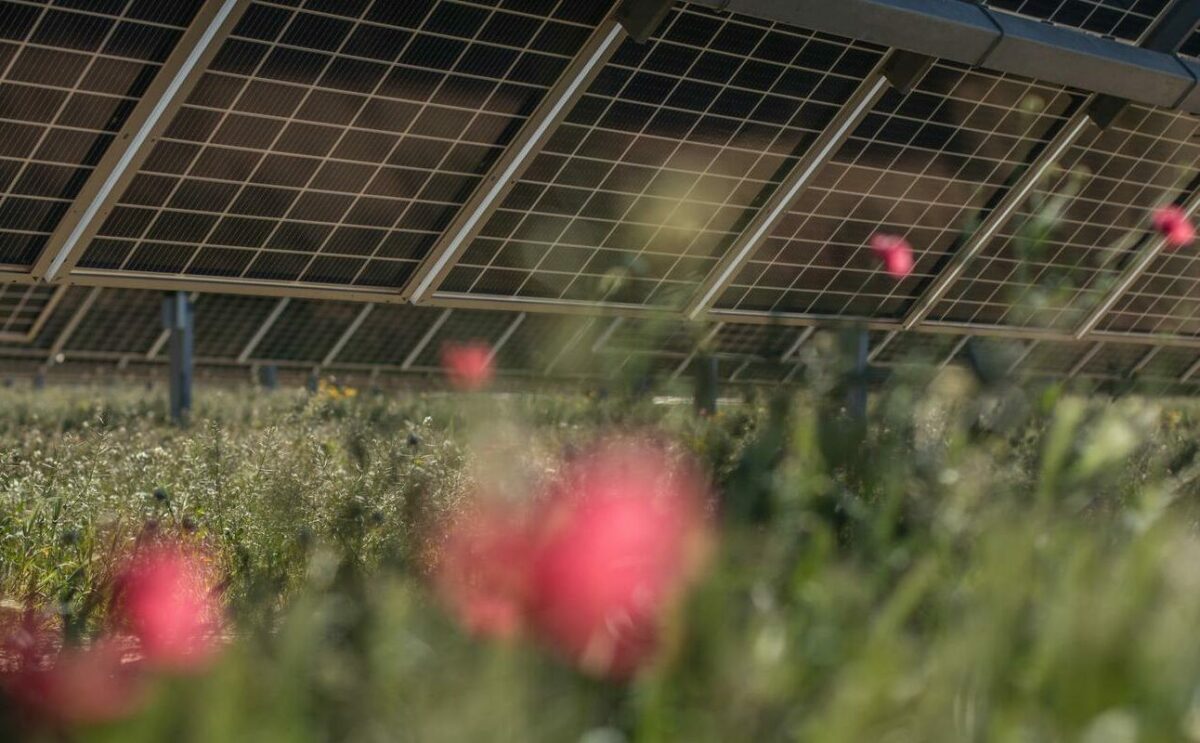How artificial intelligence (AI) is helping Lightsource bp enhance its operations
Artificial intelligence (AI) is playing an important role in supporting the scaling up of the renewable energy industry. While renewable energy companies, like Lightsource bp, help deliver the world’s energy transition, we are increasingly using AI to help us work smarter and find solutions to overcome significant challenges; from maintaining stability of supply to power grids, to protecting operational renewable energy assets against extreme weather conditions.
AI is enabling us to do the simple things faster and find intelligent solutions to new challenges.
Using machine learning to support more solar power on the grid
The weather often dictates what a power grid needs to balance supply and demand, whether it’s meeting a surge in heating or air conditioning or finding space for low-cost green electrons on a sunny day. Unpredictable weather patterns are making those decisions harder. As the renewable energy contribution grows, grids need new tools and flexibility so that they can cope with more variable power generation from wind and solar.
AI can support highly accurate near-term forecasts, providing grid operators with precise estimates of our production to help them maintain network stability. At this granularity, localised conditions and topography can have a dominant influence. This is increasingly important as variable renewables make up an increasing share of the electricity generation mix. As this trend proliferates these short-term forecasts will become increasingly important for helping grids to manage new generation capacity.
At Lightsource bp, we create these forecasts in a two-step process. One example of this is in Australia. First, we harness machine learning to forecast short-term solar irradiance by combining historical data with analysis of real-time images from on-site cameras facing the sky. We then use that forecast in a separate model to predict our power generation with what we believe to be industry-leading accuracy.
Our advanced energy generation forecasting capabilities use machine learning to routinely beat third-party forecasts, helping the grid operator to improve the stability of their supply.
Protecting solar assets with AI-enhanced weather forecasting
In the US, the growing frequency of hailstorms with ever larger hailstones poses a new challenge. In anticipation of this, four years ago Lightsource bp began work on ‘Project Whiskeyball,’ our comprehensive program to mitigate the risk to our plants’ modules from potentially damaging hail.
Our modules are mounted on trackers designed to follow the sun during the day; those trackers can be angled by us in anticipation of a storm in order to significantly reduce the impact force of large hail.
AI plays a key role in deciding when those interventions should begin and end – which is particularly challenging given the spontaneous nature of hailstorms. Since Project Whiskeyball’s inception, the team has monitored weather forecasts every day and made more than 200 interventions.
Optimising renewable energy site design with AI
Lightsource bp is also using AI to identify and assess potential sites for renewable energy projects by analysing various factors such as land availability, resource potential, environmental impact, grid connection and economic viability. AI can also help our teams to optimise the design and configuration of renewable energy systems to maximise their performance and improve value for end users.
This is especially useful when it comes to battery energy storage. Utility-scale batteries vary hugely in overall capacity, duration, maximum power output and response times. They must be matched to the local market dynamics, the services the battery can offer in that jurisdiction (such as maintaining the optimum frequency of the electricity) and projections of what a grid will need in the future as more renewables are connected. Our in-house AI storage tool can consider multiple variables, allowing our teams to analyse the efficacy of potential energy storage system designs. Further improvements are imminent, which will make this tool even more powerful.
Machine learning greatly accelerates our ability to identify and analyse new project ideas, providing our team with a competitive advantage. It enables them to assess the revenue potential for multiple project configurations, a process that used to take months to assess an initial site design.
Empowering our people with AI
These are some of the many examples where Lightsource bp is leveraging cutting-edge technology like generative AI to support our fast-moving teams as they navigate a rapidly changing industry.
“Our innovation is fuelled by our people,” says Adele Ara, Chief Technology Officer at Lightsource bp. “Our Applied AI & Digital Products team is characterised by curiosity and determination; they talk about all of our projects constantly, successful and failed, so that we can continuously learn and improve. The culture of innovation at Lightsource bp is active from the bottom up, and we encourage people to work in pursuit of our shared goals.
“Ultimately, people will always be the crucial differentiator at Lightsource bp. Our in-house Applied AI and Digital Products team is able to craft AI solutions for renewable energy challenges as and when they arise, empowering our people to do more and deliver at scale,” she added.
Read Part One of this series to learn more about how AI is being deployed in the wider renewable energy sector.
Latest news
01 Sep, 2025
Beyond renewable energy: Lightsource bp’s commitment to biodiversity and farming
The renewable energy sector, particularly solar energy, is playing a critical role in addressing biodiversity loss and improving ecosystems.
30 Jun, 2025
SolarPower Europe launches Global Market Outlook for Solar Power 2025-2029
Read our summary of SolarPower Europe’s Global Market Outlook for Solar Power 2025-2029.
29 May, 2025
Lightsource bp publishes 2024 Sustainability Report
Lightsource bp, a global trusted partner in delivering onshore renewable energy solutions, is pleased to publish its 2024 Sustainability Report.




